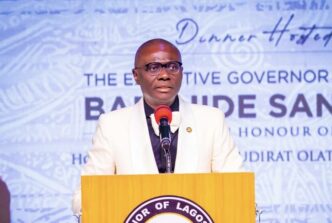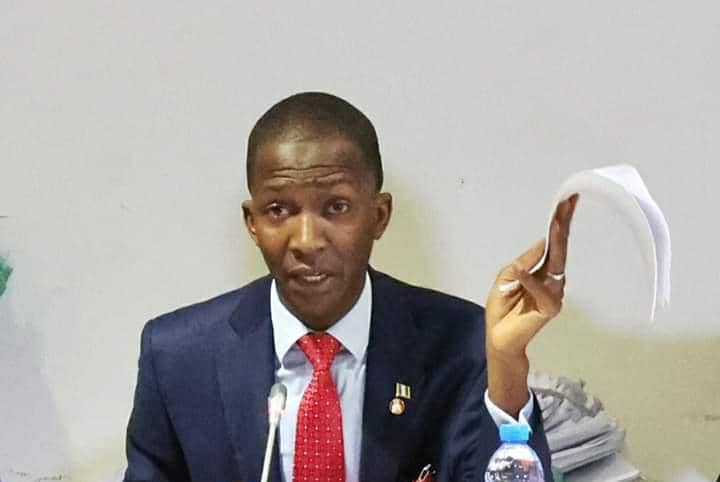Last month, the local government chairman (mayor) of Ekwusigo Local Government Area in Anambra State flagged off the construction of a 3.2km road in his local government and announced that the project will be fully asphalted and completed in 4 months. Also, this weekend, the mayor of Nnewi South Local Government Area will be flagging of a series of solar powered boreholes and will be commissioning some 7.5kVa solar powered inverters that were installed in healthcare centres in his local government. The list is endless.
There is a subtle competition amongst local government chairmen in Anambra. This type of healthy competition is not only good for Anambra State, it is good for democracy in Nigeria. Thanks to Governor Chukwuma Soludo. None of the elected chairmen wants to be seen as not living up to the standard Governor Soludo has set at the state level. It will be difficult to match the standards Governor Soludo has set but there is a genuine effort by all the currently elected local government chairmen in the state to up their game. They have a role model in Governor Soludo.
The autonomy that President Bola Ahmed Tinubu desired for Nigerian local government areas is being practiced in Anambra State. This column agrees with the President’s vision for local government autonomy and grassroot development in Nigeria. And with the local government firing from all cylinders and Governor Soludo’s massive infrastructure projects, the vision to have a transformed Anambra is on course.
Before the September 2024 local government elections in Anambra, the last time local government elections were held in the state was in 2013, at the twilight of the administration of former Governor Peter Obi. Today, elected local government chairmen and councilors in Anambra State are on a mission to revive their various local governments and they are supported by the state government. It is not going to be easy to institute all the structures local government autonomy requires but the journey is on course in Anambra.
Advertisement
In Nigeria, some commentators have criticized some local governments in some parts of the country as being active only on the days their staff come to sign off their salary timesheets. But this is not the case in the Anambra of today. Local government staff are being trained and upskilled in Anambra. The future is bright for them.
An executive bill, which is titled ‘’Anambra State Local Government Administration Law 2024’’, enacted in October 2024, has also helped to support the local government system in Anambra. Despite the uninformed criticisms from those who did not understand the law, the law has shown to be an important mechanism required to support local government autonomy. It aligns with Section 7 of the 1999 constitution which empowers state governments to legislate on local government administration.
Interestingly, the law introduces consolidated local government committees and a security trust fund committee. These committees include all 21 local government chairmen, the Accountant General for Local Governments, and other state officials. The committees aim to promote shared responsibilities and oversight. Today, local governments in Anambra are not only autonomous, they also have mechanisms for joint planning. No local government can function in isolation just as no Nigerian state can function in isolation.
Advertisement
Today in Anambra, local government chairmen function as key security officers in their jurisdiction and this has enhanced community policing. Under the Anambra State Homeland Security Law 2025, mayors of local governments are crucial links between community-level security initiatives and state-level enforcement strategies. Their responsibilities are designed to foster a collaborative and comprehensive approach to maintaining peace and order across Anambra State.
Basically, under the Anambra State Homeland Security Law 2025, local government chairmen in Anambra are members of the State Security Supervisory Committee. Mayors are tasked with receiving detailed monthly security reports from President Generals (PGs) of town unions. They coordinate community leaders in order to ensure effective implementation of security measures. They help enforce the tenant and guest identification regulations in the state and they participate in various incentive programs to support security personnel.
Local government chairmen in Anambra are in charge of their local governments and the state government is constantly decentralizing many responsibilities in the state. Mayors can choose to execute projects that are dare to their communities. Local government chairmen have their own budgets and systems in their local governments that are required to effectively manage procurement systems. And because some of these systems have been non-existent for years, there are various efforts to build capacity within these local governments.
The future is bright for local government councils in Anambra. In terms of local government autonomy, President Bola Ahmed Tinubu’s vision aligns with that of Governor Soludo.
Advertisement
Many social commentators are excited about the changes in Anambra. In America, some counties own and operate airports. This ownership model is supported by US federal funding through programs like the Airport Improvement Program (AIP) and Airport Infrastructure Grants (AIG), which are managed by the Federal Aviation Administration (FAA). Hopefully, one day, local governments in Nigeria will start owning airports (provided the constitution is amended to allow for this)!
The glory days of local government councils are back in Anambra and the future of Anambra is very bright. Other states can learn from Anambra.
Nwankwo is the special adviser on special projects to Soludo.
Advertisement
Views expressed by contributors are strictly personal and not of TheCable.











